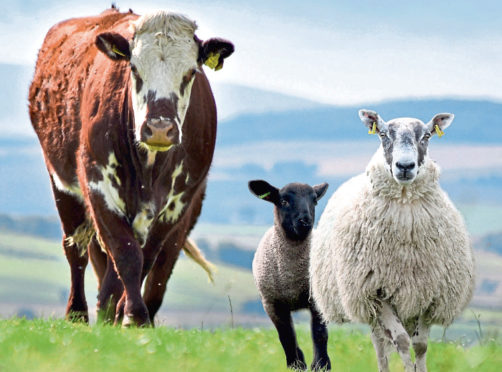Scientists have created pigs, goats and cattle that can serve as viable “surrogate sires” – male animals that produce sperm carrying only the genetic traits of donor animals.
Researchers say the development could speed up the spread of desirable characteristics in livestock and improve food production for a growing global population.
Additionally, it would give breeders in remote regions better access to genetic material of elite animals from other parts of the world, and allow more precision breeding in animals such as goats where using artificial insemination is difficult.
“With this technology, we can get better dissemination of desirable traits and improve the efficiency of food production,” said Jon Oatley, a reproductive biologist at Washington State University (WSU). “This can have a major impact on addressing food insecurity around the world.
“If we can tackle this genetically, then that means less water, less feed and fewer antibiotics we have to put into the animals.”
Scientists used the gene editing tool CRISPR-Cas9, to knock out a gene specific to male fertility in the animal embryos that would be raised to become surrogate sires. Although the male animals were born sterile, they began producing sperm after researchers transplanted stem cells from donor animals into their testes.
The study, published in the Proceedings of the National Academy of Sciences journal, is the result of six years of collaborative work among researchers at WSU, Utah State University, the University of Maryland and the Roslin Institute at the University of Edinburgh. Professor Bruce Whitelaw from the Roslin said the study provided a powerful proof of concept.
He added: “This shows the world that this technology is real. We now have to go in and work out how best to use it productively to help feed our growing population.”
Professor Irina Polejaeva from Utah State University said a lot of work needs to be done outside of the lab before the modifications can be made to the animals.She said: “The speed at which this can be put into action in livestock production anywhere in the world is going to be influenced by societal acceptance and federal policy.
“By working with policymakers and the public, we can help to provide information assuring the public that this science does not carry the risks that other methods do.”
